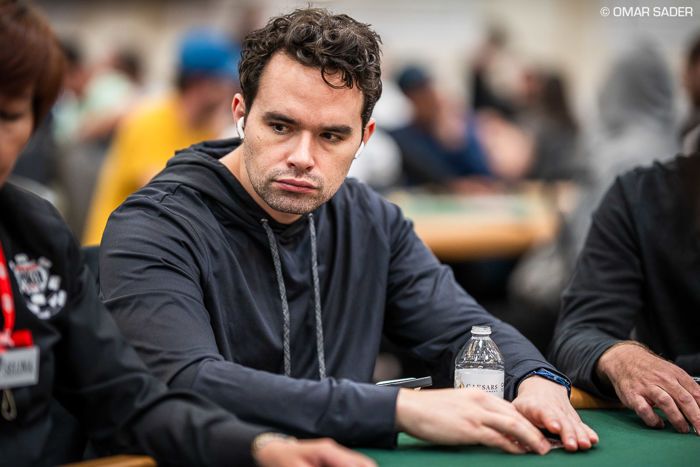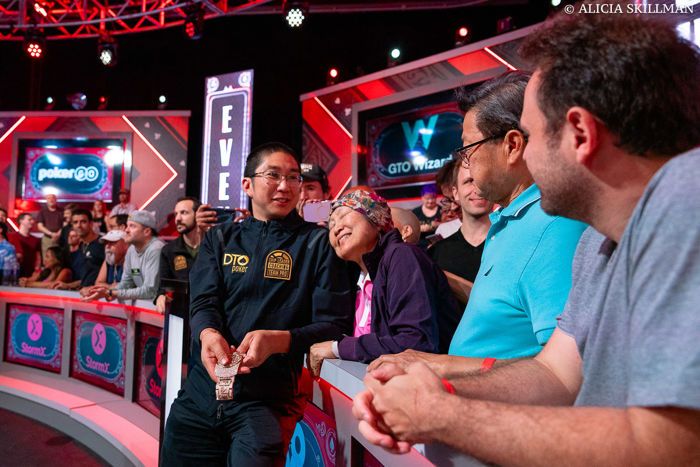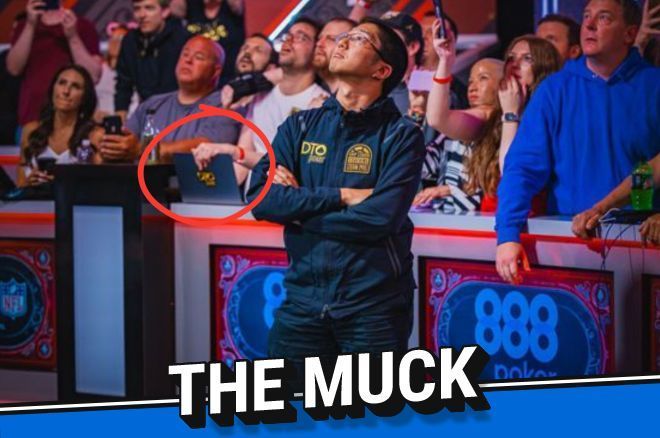There is no rule against a player’s rail watching the livestream or reviewing solvers during the World Series of Poker (WSOP) Main Event final table. But Alan Keating is not a fan, and he isn’t the only one.
Jonathan Tamayo won the 2024 WSOP Main Event for $10 million on Wednesday. He broke no rules and earned that victory, much like his longtime friend Joe McKeehen, who was on his rail, did in 2015.
There was some debate on social media, partially led by Keating, over Tamayo conferring with his rail in between hands quite frequently during the final table. And that is what we’re going to dive into in this post-WSOP edition of The Muck.
Keating Thinks it’s Bad for Poker

As Keating mentioned in a separate tweet, the Main Event is the game’s “biggest stage.” Thousands of viewers who don’t regularly watch poker tune in to see poker’s Super Bowl equivalent. The Hustler Casino Live fan favorite asked his followers if players at the Main Event final table having a team on the rail using software to coach one of the players makes them more or less interested in poker?
“If poker needs recreational players, then there’s a need to produce an environment where the average recreational player believes that they have a decent enough chance of winning,” Vincent Robinson (@pokervincent) responded.
“Rails are for cheering, not for solving,” @Bquadrant argues.
Keating has always been more of a cash game player than a tournament grinder. He rarely plays tournaments, and instead regularly competes in high stakes private games in Los Angeles and Las Vegas against recreational players. He competed in a Hustler Casino Live game last month against controversial social media influencer Dan Bilzerian, video game streamer Ninja, and boxer Ryan Garcia.
Competing against players using solvers or getting assistance from coaches such as McKeehen and Dominik Nitsche, who had a piece of Tamayo’s Main Event action, doesn’t seem too exciting to Keating or his friends. He wrote that “tournament poker isn’t for us.”
Did the Champ Do Anything Wrong?

As @PatMoorePoker shared on X, Tamayo’s rail provided some post-hand assistance to the champion at the final table via a laptop and cell phone, which had the PokerGO livestream visible. It’s unclear how much the champion benefited from the sideline coaching. But it did spark debate about if it gives a player an unfair advantage and if the practice is bad for the growth of the game.
Reviewing plays is a common in-game practice in sports, especially team sports. But many have argued that since poker isn’t a team sport, using solvers and sims on the rail shouldn’t be permitted.
Nitsche, who not only had a piece of Tamayo’s action but also owns the DTO Poker Trainer software that assisted the champion in between hands, took aim at Keating’s comments.
It’s clear that both poker players want to grow the game in different ways. Keating is concerned with scaring away the recreational players, while Nitsche is focused on helping poker players improve their game. They are polar opposites on the felt — one (Nitsche) playing GTO style in tournaments, and the other (Keating) VIP’ing 80% in cash games.
“Look man, they’re playing for $10 million. They’re going to do anything within the rules to win. If you don’t like it then complain to the organizers,” @APAP74902546 tweeted at Keating.
“You speak with the privilege of someone who plays poker for fun, but has absolutely no burden or obligation to make a profit,” writes @MagicJourney69, taking a shot at Keating.
Fedor Holz, whose 2016 run was among the best in poker history, chimed in with his take on the issue. The GGPoker ambassador appears to side with Keating instead of his fellow German, Nitsche.
There are two things that are true — Tamayo is the world champion and didn’t break any rules, and Keating has a right to dislike the practice.
